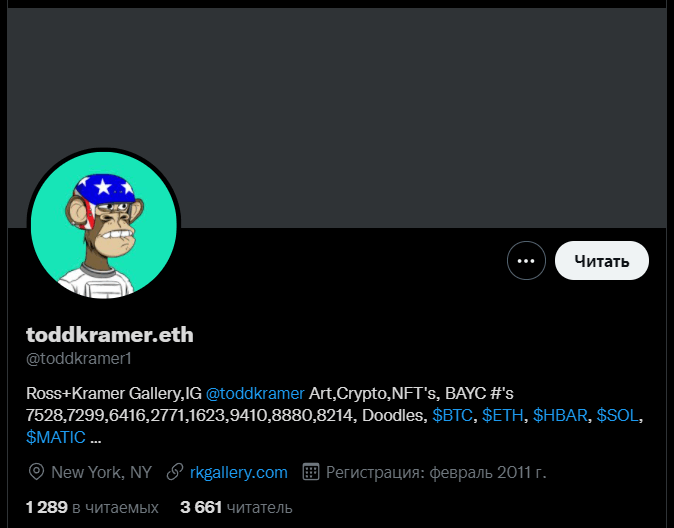A crypto investor lost almost $2 million because his NFT tokens were stolen. How did this happen?
In the fast-growing trend of unique tokens, there are many “opportunities” to create fraud schemes. The day before, Todd Kramer, head of New York art gallery Ross+Kramer, fell victim to one of them. A few days ago, he claimed that his tokens from the Bored Ape Yacht Club (BAYC) collection worth $1.9 million had been stolen. A little later, it emerged that the trading platform for NFT OpenSea had frozen those assets and is helping Cramer with the recovery of the funds. We tell you more about the situation.

It should be noted that the Bored Ape Yacht Club series of NFT tokens is one of the most popular today. It is also limited in maximum quantity, and has unique features that make it more or less rare.
Failures with this NFT collection have been plentiful of late. For example, one cryptocurrency investor lost almost $300,000 on the sale of his token in mid-December. The reason for the loss was that the owner of the digital image simply inadvertently listed too low a price for his NFT. Read more about this story in a separate article.
How NFT tokens are stolen
Kramer fell victim to hackers who created a decentralized phishing app. The crypto-enthusiast clicked on one of its links, after which 16 unique tokens from his wallet disappeared somewhere. The tweet with this statement he later deleted. Its contents originally read as follows.
I’ve been hacked. All my ‘monkeys’ are gone. They just sold everything. Please help me.
Recall that phishing is an attempt by attackers to extract passwords or other secret combinations or keys from their victim. In this case, Kramer most likely unknowingly signed a transaction to interact with the fraudsters' smart contract, which withdrew all his tokens from the wallet. Among the losses are 8 tokens from the Bored Apes series, 7 Mutant Apes and one NFT from the Clonex series. Right now, these tokens can be sold for about $1.9 million, which means that the amount of loss was more than impressive.

One of the tokens from the Mutant Apes series
According to Decrypt, Kramer later claimed on Twitter that the OpenSea platform was helping him with recovering the lost tokens. Here’s a replica of the hacking victim.
Update: all “monkeys” are frozen, awaiting further action from the OpenSea team. Lesson learned – use a hardware wallet to store NFTs. I never thought I’d have so many trolls in the comments, but kindness always wins out.
The trolls are some users who under Kramer’s previous tweet jokingly advised him to change the avatar of his BAYC collection account, as he himself has now lost the token. Here’s one of those messages from a user with the nickname askeeve.
Wow, that’s shitty dude, I’m really sorry. But please change your account avatar as you don’t own it now.

Kramer’s Twitter avatar is one of the stolen “monkees”
In addition, the community also disliked the fact that OpenSea could quickly freeze NFT on its platform. This, according to commentators, goes against the industry’s decentralisation paradigm. Here’s how a username under the nickname Forculus commented.
It’s pretty “anti-cryptocurrency” to ask third parties to block assets, and ideally there should be no such thing.

Kramer’s tweet hinting that he managed to get almost all of the NFT back
Fortunately, the situation ended with a happy ending – Kramer was helped to get almost all of his NFT monkeys back after all. In conclusion, Kramer added that he would definitely buy a hardware wallet for his assets from now on and take into account the mistakes he made. The very fact that OpenSea blocked the tokens is a highly expected development, as the platform is a centralised trading platform and in this case spared the user a lot of losses.
We believe that there is nothing wrong with such a reaction on the part of OpenSea, because the platform is centralised. Accordingly, the company's representatives have the tools to conduct such operations. And while they are generally contrary to the ideals of the blockchain community, in this situation it was probably the right decision. At least the criminals were not able to profit from their activity - which is always a good thing.
What do you think about it? Share your opinion in our millionaire cryptochat. We’ll talk about other topics related to blockchain and decentralisation there too.















